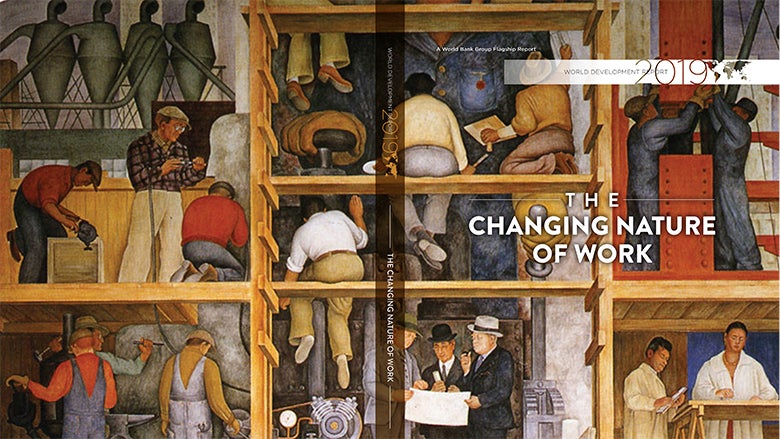
Do you wonder if the good fortune and opportunities that you’ve enjoyed in your professional life will be available to your children, and to their children? At a time of strong global economic growth, it may seem paradoxical that we face an existential crisis around the future of work. But the pace of innovation is accelerating, and the jobs of the future – in a few months or a few years – will require specific, complex skills. Human capital will become an ever more valuable resource.
In short, the changing nature of work – and how best to prepare people for the jobs of the future – are some of the toughest challenges countries face, which is why they’re the subject of this year’s World Development Report.
Because the future of work matters to all of us, we decided to give this report an unprecedented level of transparency. For the first time since the World Bank began publishing the WDR in 1978, the report is completely transparent throughout the writing process. Every Friday afternoon, the latest draft is uploaded to the World Bank website, so that anyone with internet access has an opportunity to read it and engage with the team of authors. I can’t promise that the WDR won’t have changed a week from now, which is why I encourage you to keep revisiting it as we keep revising it.
For new readers, here are a few insights into the report’s contents that I hope will get you thinking about the future of work:
First, while the threat of imminent, widespread, technology-induced unemployment is a chimera, jobs are currently being lost and will be lost to automation. But technology also creates new opportunities and is constantly improving global living standards. The world is better connected, aspirations are rising, and disparate voices are more likely to be heard.
Second, the skills needed for work are changing, literally, every day. New jobs will require specific skills—a combination of technological know-how, problem solving, and critical-thinking skills, as well as soft skills such as perseverance, collaboration, and empathy. That means countries must invest much more – and more effectively – in their people to build human capital.
Investing in human capital is the key mechanism to ensure that the next generation is ready for the changing nature of work ; however, too many countries are under-investing in these critical areas—especially in the early formative years of childhood, when the ability to learn new skills quickly is decisively molded. When countries don’t invest to build human capital, it puts successive generations – especially the poorest – at a severe disadvantage, exacerbates inequalities that already exist, and threatens to create instability when rising aspirations are met with frustration instead of opportunity.
Third, we should ensure that opportunity, like talent, is distributed equally throughout society. One of the primary ways we can ensure this is to protect people through social assistance and insurance systems that fit with the changing nature of work. The current model is broken in most developing countries and looks increasingly out of date for most advanced economies as well.
Social contracts are also about inclusion, which means that the wealthy have to pay their share of taxes. With insufficient tax revenues, governments can’t deliver the current social contract. Countries in every region must do more to stop tax avoidance, and the only way they can, in the words of leaders of the world’s 20 largest economies, is to “put an end to the divorce between the location of profits and the location of real activities.”
There’s a lot more in the report that I hope you’ll explore as it continues to evolve in the coming weeks. I’m certain that when the final draft is launched in the fall it will make a significant contribution to the debate on the future of work. If you want to get involved, you can start by reading the work in progress here.
Originally published on LinkedIn.


Join the Conversation